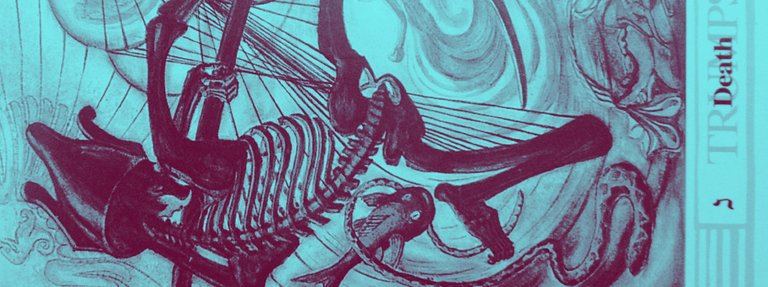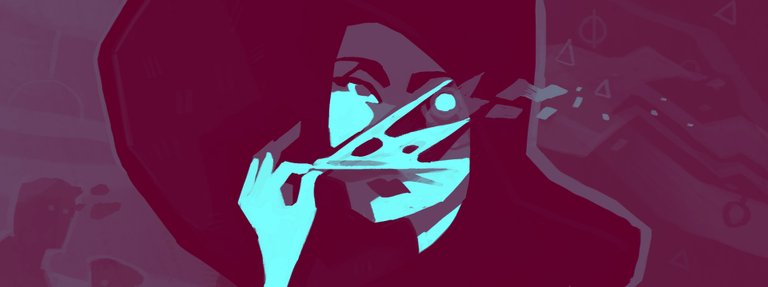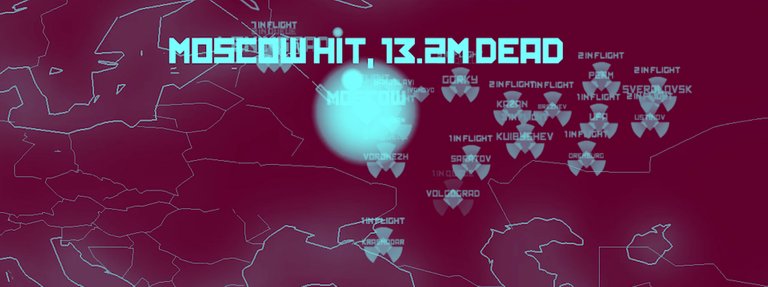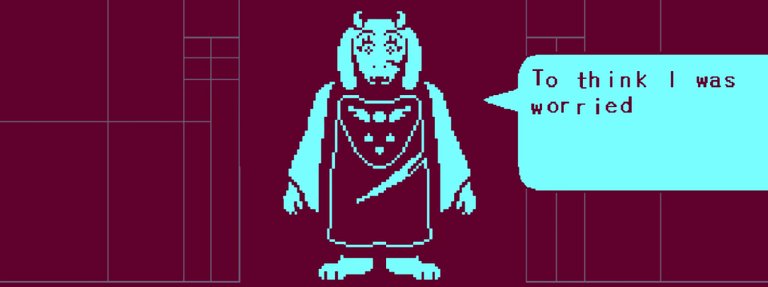
This article might be triggering. It mentions occultism, suicide (a couple of times), family violence and climate grief. If those themes are too disturbing, please refrain from reading. Take care of yourself first and foremost.
A couple of months ago I found myself in a situation so surreal that it didn’t feel like real life.
I was standing in the middle of a dark room, the only sources of light being the candles strategically positioned in the four cardinal points of the space. Me and the few people around me were all wearing hooded black cloaks. Behind me, a friend was saying words in what sounded like Sanskrit or perhaps Ancient Egyptian.
I’ve been told he was casting a spell.
People joke about cults. Crossfit is a cult or Pyramid schemes behave like cults. Haha, very funny. But what happens when you find yourself in the eye of the storm of a real cult? Hooded figures in the darkness, masks with painted symbols, low chanting and all.
You might say I was there by my own volition: a childhood friend of mine was going through an intense spiritualization moment in his life and I told him I wanted to somehow be a part of it. He told me that whenever I visited, he’d be delighted to prepare something for me. I was expecting a deep Tarot reading or perhaps a long meditation session.
Not this.
A guy approaches me, hard to see in the dark and without my glasses. When he’s very close, I notice he’s holding something like a dagger or a sword.
My heart was racing, my thoughts were all scrambled. Some of these people I’d known for a long time, sword dude was a complete stranger. I kept asking myself what would happen to me.
As much as this whole situation was challenging my emotions, I distinctly remember thinking about a game.
Somewhat ironic and unironic at the same time, is the title of such game: Cultist Simulator.
In this very abstract narrative game, you play as a student of the occult. You start by trying to conciliate your work life with your passion and probings. Then you get deeper and deeper into the lore, the occult arts start to take over your life. What began as study becomes practice. One thing leads to another.
I remember playing the game and being fascinated by the scenes it proposed.
I remember, a good 7 hours into the game, luring a character inside my temple. And sacrificing him.
Now I saw myself somehow lured (lured? I asked for it!) into this temple and I had to ask myself: these people around me, who they really are?
Which also yanked me into thinking: who was I when I was playing Cultist Simulator? Would I, under the right circumstances, be capable of such a monstrous act? Would anyone be?
Would these people around me be?

Who are you when you’re not yourself?
Don’t worry, I’m absolutely fine. In the end the ceremony I participated in was not so different from a special meditation or a deep Tarot reading. It was just extremely theatrical. The sword freaked me out, but it was probably bought for $4.99 and thus incapable of cutting even lettuce, let alone my neck.
But it bugged me for a couple of months that I even considered that my friends could hurt me — all catalysed by a bunch of pixels I had ‘hurt’ in a game.
Yet I have to admit that’s a useful tool, a concrete way for you to look into your shadow.
Jungian therapists, mindfulness coaches, Seneca shamans, personal bodybuilding trainers, priests behind confessionaries and many other forces are always trying to nudge people into looking at their ugly selves. The bad bits, the part of you constantly trying to un-you yourself.
— Don’t go to work today. Just pretend you’re sick.
— Eat another cookie. Then another.
— If you scream at her, you’ll feel better.
— Spend all of your money, you deserve a treat.
Shadows comes in all shapes and sizes, always the exact opposite of your own values. Fighting against you. Pushing you to do things you abhor.
The strangeness I felt was this eerie sensation of empathising with my shadow: in the constraints of this game world I had chosen to commit an unthinkable act — so when I felt I could be a victim of the same act (ludicrous as it was), I couldn’t help but to remember making this decision myself in a simulator.
Understanding your shadow is complicated enough. Empathising with your shadow is a whole new level: a deep, powerful force. I guess the exact kind of experience my spiritual friend wanted to put me through. I dare say the kind of experience the company behind this game was also thinking about.
Screw Tarot! I had to shake hands with my own, personal demon.

Uneasy, uncomfortable, unsettling
If you read my first article, you know one of my five life-change design pillars is:
An experience that’s able to create a memory capable of changing one’s perception of self.
There are numerous ways to do this, but discomfort resonates with a lot of people — as it did with myself, so here I’m going to focus on that particular case.
It’s important to mention that games are by no means the only medium where discomfort is a valid aesthetic choice. An infinity of artists of all metiers have dedicated their carriers to make people feel ‘ugh’ — like the film director Lars Von Trier, the experimental musician Maryanne Amacher, the product designer Katerina Kamprani or the Invisibilia radio producer Lina Misitzis.
Click the links above at your own risk.
But as masterful as these and other pieces are, games have their own unique force: you’re the one making the decisions. Even when discomfort is forced upon you in a game (let’s say: kill these innocents or the game will not progress), you always have the choice to put the controller down and do something else — and you most likely won’t.
You’re not a passive audience member. You’re the one pulling the trigger.

First hand experience
I’ll do my best to run away from generalizations and clichés in this series — so instead of talking about big games with famous uncomfortable moments, I’m going to talk about my own experience.
The list below are real game experiences I had and in all of them I felt weird about something (spoilers ahead):
Stanley Parable
This is a narrative game about free will — it’s you and a disembodied narrator, both sort of fighting to see who has real control.
There’s plenty of unsettling moments here, specially because they contrast with the humorous nature of the rest of the game, but one stuck with me. In one of the possible endings, you’re trapped in a space. No doors out. You then notice a flight of stairs.
The only way forward is to climb the stairs and jump down. All the while, the narrator is pleading you to stop with your madness and trying to blackmail you into living.
You need to jump three times to actually finish it. The first two, when you land you’re hurt, thus making the next climb slower. There’s no sugar coating, it’s a clear suicide.
It was just a game and not even the only time you die in this game. Still it’s the scene I remember the most.
Undertale
Undertale takes all the customary game conventions and flip them over. One of its major points is that you can be ultraviolent, you can be a pacifist and anything in between.
I came to this game already with this knowledge and decided to follow a pacifist route, as I felt was the funnest way to play it.
Early in the game, you meet a character that takes care of you — a very literal mother figure that just wants you to be happy. When you try to explore the world further, she puts herself in your way, becoming thus the first boss of the game. She’s not trying to hurt you, just trying to stop you from hurting yourself.
In any case, there’s a battle and I, the pacifist, chose not to fight her. Part of this fighting (I was doing it wrongly) was to press the ‘attack’ button and just don’t use the opportunity to attack. Well, what happened was that I missclicked and… butchered her.
I felt horrified by my mistake and decided to reset the game and start over from a previous point. But Undertale is no regular game. As soon as I came across the same scene and managed to pass by her peacefully, another character told me he knew I had murdered her and mocked me for feeling guilty.
Yikes.
Doki Doki Literature Club
(Major spoiler ahead)
This is a horror game like no other horror game. It starts as a very cliché dating simulator — a genre generally aimed at horny teenagers — and forces you to brute force through hours or uninspired trope-play.
Then it changes.
One of the characters (named Sayori), a clumsy head-in-the-clouds girl, asks you out. Other girls ask you out as well: more talented, bright and witty girls. Sayori had recently confided to you that she suffers from depression, but the time she’d be spending with you and the other people had been really helping. I chose to go out with Sayori.
Moments of intimate exchange like this are a common trope in dating simulator, though this one felt a little too real. You arrive the next day to pick Sayori up at her place.
She hung herself. No matter what you choose, the next day she’ll be dead. You’re the one who finds her body.
It’s a brutal scene. For someone like me who does not share the depression the character experiences, it’s a cold cold shower.
I was yanked into revisiting all sorts of conversations I had with friends who told me they suffered from depression — even the ones when they were happy and smiling.

My children will pay, an early game concept
Sorry to go from one downer to another, but hey, you signed up for this.
As we discussed, this feeling of unease is useful: it can be a powerful self-reflection tool that will help you figure out who you are or even who you could be, thus perfectly fitting one of my design pillars: “Facilitating a memory capable of changing one’s perception of self.”
Now, how to make good use of this force? Allow me to propose a practical (yet theoretical) example!
I was recently inspired by Greta Thunberg’s speech at the UN and I’d love to add my energy to her climate cause. At the same time, I feel that if any head of state dedicated all of their country’s resources to fight climate change, they would most probably be removed from office or at least lose a reelection. The new elected replacement would probably cater to an angry electoral crowd, eager to have their privileges back and denying climate change at all costs.
So how to create an experience to reveal this dynamic?
A resource management game focused on entire nations. Inspired by Europa Universalis and SimCity, but without the moving & building aspect.
In this game, you have two sides of the screen — the left side represents the present days. You can, turn by turn, make decisions to allocate resources to one or another cause/policy.
On the right side of the screen, there’s the social and climate repercussions of your actions 100 years in the future. Those you can’t really change and they are very graphic about the worst aspects of your decisions: child mortality is marked with piles of bodies, homelessness shows people shivering in the street, violence is measured by a number, but also the amount of blood you can see on the streets.
Here’s the catch: on the left side of the screen, the present days, you can take action to mitigate those future troubles — but you got a competitor.
There’s a greedy, rude, lying candidate always competing for your position in each election. If you spend too much money on preservation, you’ll have less money for your campaign. If you raise the taxes, the rich will support your adversary.
If you lose the election, you’ll still be able to see the repercussions of your loss — and I guarantee: it’s going to be dire. This suffering is also your responsibility. You should have campaigned more, you should have compromised. But how much?
Again: yikes!
Finding this game in a museum would be a breath of fresh air.
Do you think this idea could work?
Do you have any other ideas?
If you’re interested in this whole life changing game subject, my intention is to gather a community of people around it — who knows what sort of experiment this path might lead to?
The first and second articles I wrote had quite a few responses, but I’m still figuring which platform would be good to host this group. For now, please keep in touch here: joriam@enspiral.com
I’m interested in who you are and why this speaks to you, so please drop me a line.
I like you sim city ish game idea. I think we're on the same vibration, cause i kinda proposed an idea not to far from this in a recent article i wrote. The idea is that we the people, make a simulation of a self governance system, that allows us to see what the people really want. Then as I feel the majority, being humble working class people, will make better choices than government. Then either the politicians expose that they work for the elites, or they have to listen to what the people actually want.
Posted using Partiko Android
Hey that sounds pretty interesting indeed!
I'm actually part of a community of decentralised organisation enthusiasts — and in many instances I'm the "game guy" in those groups. I'd love to see tangible projects like this going forward.
Still funding is a big issue =/
Hey I'd love to read your article, mind pasting it here?
Not a problem, glad to get more opinions on it. It's still a bit rough, but as i get better at writing i plan to rewrite it, and maybe one day make it a video sorta like the old zietgiest videos.
https://steemit.com/threespeak/@howweroll/can-government-and-the-economy-be-hardforked-like-steem-to-change-behaviour
Posted using Partiko Android
The Creative Crypto is all about art on the blockchain and learning from creatives like you. Looking forward to crossing paths again soon. Steem on!Hello @joriam, thank you for sharing this creative work! We just stopped by to say that you've been upvoted by the @creativecrypto magazine.
Thanks for the upvote @creativecrypto =)
Hey I had a look at your magazine and it looks rad! Lovely design work!
I'm looking for places to repost articles just like this one (this is n.03 of a series) — would you folks be interested?
This post was shared in the Curation Collective Discord community
community witness. Please consider using one of your witness votes on us here for curators, and upvoted and resteemed by the @c-squared community account after manual review.@c-squared runs a
Congratulations @joriam! You have completed the following achievement on the Steem blockchain and have been rewarded with new badge(s) :
You can view your badges on your Steem Board and compare to others on the Steem Ranking
If you no longer want to receive notifications, reply to this comment with the word
STOPDo not miss the last post from @steemitboard:
Vote for @Steemitboard as a witness to get one more award and increased upvotes!